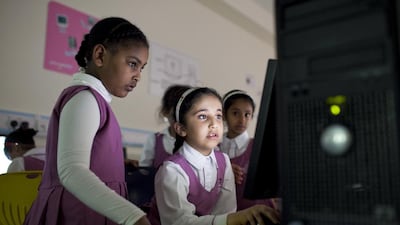There have been few tools as critical to human empowerment as the internet. Since the onset of a global pandemic that has seen billions of individuals at one point or another confined to their homes and distanced from their peers, the importance of the connectivity the internet offers seems impossible to overstate.
This week, The National published a report about internet blackouts in the Yemeni city of Aden. Political instability amid Yemen's ongoing civil war have resulted in an irregular supply of electricity, leading to frequent outages and slow internet speeds throughout the country. As one telecom engineer put it, the lack of adequate internet infrastructure to begin with has also been a crucial factor. The Houthi rebels who control large parts of Yemen have mismanaged what little infrastructure exists, and deterred any investment in developing it. As a result, Yemenis are frequently disconnected from the world outside their country.
According to a World Economic Forum report, 3.7 billion people around the world still have no internet access. If it is bad enough that, globally, only 55 per cent of households are connected, what’s worse is that the pandemic has widened the existing digital divide. In the developed world, 87 per cent of households are connected, compared with 47 per cent in developing nations, and just 19 per cent in the least developed countries. The divide also runs within countries: Unicef reports that in 71 countries more than half the population has no access, particularly those living in remote areas. It runs within demographics, too: globally, women are 23 per cent less likely than men to use mobile internet.
At a time when the pandemic has forced a major shift to online work, disruptions like this in Yemen and other developing nations pose a very worrying obstacle to economic growth. Even more concerning, especially over the long term, is the notion that a lack of quality internet access will prove debilitating for human development. This is especially true when it comes to education.
For so long, one of the greatest challenges the developing world faced was a poor education infrastructure – a shortage of educators, underinvestment and crumbling schools. The widespread diffusion of internet-enabled, mobile devices into emerging markets and the world's poorest countries has been a game-changer in this respect. Lesson plans can be developed collaboratively, translated quickly and disseminated widely. A teacher in Canada or Finland can run a class over video for a refugee camp in Palestine or Lebanon. These innovations are not yet the norm, but the world is moving in that direction.
It would be a tragedy if our progress was halted only as a result of our inability to keep up. In 2016, the United Nations declared internet access to be a human right. Like other human rights, safeguarding it requires political leaders ensuring stability, infrastructure development and a high quality of life.
According to Unicef, about 1.5bn school children worldwide remain affected by school closures. Even in normal times, a lack of internet access was becoming synonymous with the lack of a truly comprehensive education. Now, for the 460m children without internet, it means no access to any kind of education at all.


